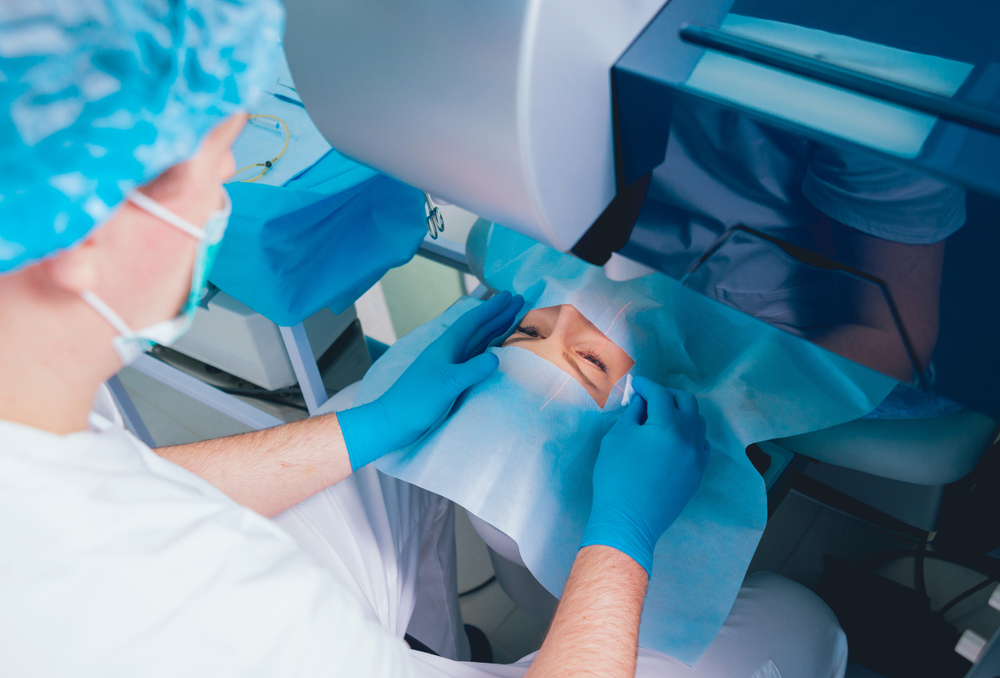LASIK or laser-assisted in situ keratomileusis is an eye laser refractive surgery, which is the best and most commonly performed surgery to correct one’s vision. This procedure is often used as an alternative to wearing eyeglasses or contact lenses.
Normally, our cornea precisely refracts light into the back of our eyes. However, certain vision problems cause the light to bend inaccurately, which results in blurry vision. Hence, in this procedure, the shape of the dome-shaped tissue at the front of the cornea is changed using a special type of laser in order to repair our vision.


